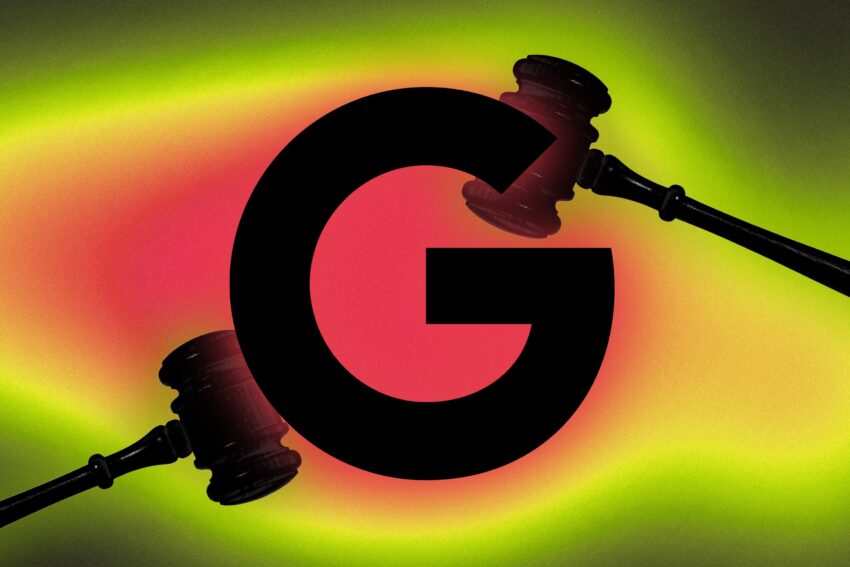
judge wants to fix google s ad A pivotal legal battle is unfolding as Judge Leonie Brinkema prepares to rule on whether Google should be compelled to divest parts of its advertising technology business to address its monopoly status.
judge wants to fix google s ad
Background of the Case
The U.S. Department of Justice (DOJ) has been engaged in a protracted legal struggle against Google, primarily focusing on its dominance in the digital advertising sector. This case is part of a broader initiative by the DOJ to rein in what it perceives as anti-competitive practices among major tech companies. The DOJ’s case against Google was filed in January 2023, alleging that the company has maintained an illegal monopoly in the ad tech market, specifically through its AdX exchange and publisher ad server.
Judge Brinkema’s courtroom has become a focal point for discussions surrounding the future of digital advertising. Her previous rulings have already established that Google holds an illegal monopoly in two significant ad tech markets. The implications of her forthcoming decision could reverberate throughout the tech industry, affecting not only Google but also its competitors and the broader ecosystem of digital advertising.
Key Arguments Presented
DOJ’s Position
The DOJ is advocating for substantial changes to Google’s business model, specifically calling for the divestiture of its AdX exchange. This move is aimed at dismantling what the DOJ views as an entrenched monopoly that stifles competition and innovation in the digital advertising space. The DOJ has also left open the possibility of forcing the sale of Google’s publisher ad server, further emphasizing the need for structural changes to restore competitive balance in the market.
During the closing arguments, DOJ representatives highlighted the urgency of the situation, stressing that Google’s monopoly not only harms competitors but also negatively impacts advertisers and consumers. They argued that the current state of affairs leads to higher advertising costs and reduced choices for businesses looking to promote their products and services.
Google’s Defense
In stark contrast, Google has maintained that only behavioral changes are necessary to address the issues identified by the court. The tech giant argues that it has made significant strides in improving its practices and that further structural changes would be unnecessary and disruptive. Google’s legal team contended that the company has a long history of fostering competition and innovation in the ad tech space, pointing to its various initiatives aimed at enhancing transparency and efficiency.
Google’s representatives also expressed concerns that divesting key components of its ad tech business could lead to unintended consequences, potentially destabilizing the market and harming consumers. They emphasized that behavioral changes could be implemented quickly and effectively, allowing for a more agile response to the court’s findings without the need for extensive restructuring.
Judge Brinkema’s Considerations
As Judge Brinkema deliberates on the case, timing appears to be a critical factor in her decision-making process. She has acknowledged the urgency of the situation, stating that “time is of the essence.” This sentiment reflects a growing concern among regulators and lawmakers about the rapid evolution of the digital advertising landscape and the potential for further entrenchment of monopolistic practices if decisive action is not taken.
Brinkema’s awareness of the likelihood of an appeal by Google adds another layer of complexity to the case. She noted that the DOJ’s proposed remedies “most likely would not be as easily enforceable while an appeal is pending.” This acknowledgment raises questions about the effectiveness of any remedies that may be implemented in the interim, should Google choose to contest the ruling.
Implications for the Tech Industry
The outcome of this case could set a significant precedent for how monopolistic practices are addressed in the tech industry. If Judge Brinkema rules in favor of the DOJ and mandates structural changes, it could pave the way for similar actions against other tech giants. The implications extend beyond Google, as the ruling could influence how companies like Meta, Amazon, and Apple approach their business strategies in the face of increasing regulatory scrutiny.
Moreover, the case highlights the ongoing tension between innovation and regulation in the tech sector. Proponents of stricter regulations argue that they are necessary to ensure a level playing field, while critics contend that excessive regulation could stifle innovation and hinder growth. The balance between these competing interests will be a focal point for policymakers and industry leaders in the coming years.
Stakeholder Reactions
The reactions from various stakeholders have been mixed, reflecting the complexities of the case and the broader implications for the tech industry. Advocates for stricter antitrust enforcement have lauded the DOJ’s efforts to challenge Google’s dominance, viewing it as a necessary step toward fostering competition and protecting consumers.
On the other hand, industry representatives and some legal experts have expressed concerns about the potential consequences of breaking up Google’s ad tech business. They argue that such actions could lead to fragmentation in the market, ultimately harming advertisers and consumers who rely on the efficiency and effectiveness of Google’s advertising tools.
Comparative Context: Other Antitrust Cases
The Google case is not occurring in isolation; it is part of a broader trend of antitrust scrutiny targeting major tech companies. A recent case involving Meta serves as a cautionary tale for the DOJ. The judge in that case ruled against the government, citing timing issues and the evolving competitive landscape. When the case was initially filed in 2020, TikTok was a relatively small competitor. By the time the trial commenced, TikTok had significantly increased its market presence, complicating the government’s argument that Meta was an illegal monopolist.
This context underscores the challenges faced by regulators in proving monopolistic behavior in rapidly changing markets. The Google case, however, is being pursued in the Eastern District of Virginia, known colloquially as the “Rocket Docket” for its expedited timelines. This choice of venue reflects the DOJ’s desire to address the issues swiftly, given the fast-paced nature of the digital advertising landscape.
Looking Ahead
As Judge Brinkema prepares to issue her ruling, the tech industry is bracing for the potential fallout. A decision mandating structural changes could lead to a significant reshaping of the digital advertising landscape, impacting not only Google but also its competitors and the broader ecosystem of advertisers and publishers.
Regardless of the outcome, the case is likely to have lasting implications for how antitrust laws are applied in the tech sector. It may also influence future regulatory efforts aimed at curbing monopolistic practices among other major players in the industry. As the digital landscape continues to evolve, the balance between innovation and regulation will remain a critical area of focus for policymakers, industry leaders, and consumers alike.
In conclusion, the stakes are high as Judge Brinkema prepares to make a decision that could alter the trajectory of Google’s advertising business and set a precedent for future antitrust actions in the tech industry. The implications of her ruling will be felt far beyond the courtroom, shaping the future of digital advertising and competition in the years to come.
Source: Original report
Was this helpful?
Last Modified: November 22, 2025 at 5:37 am
2 views















